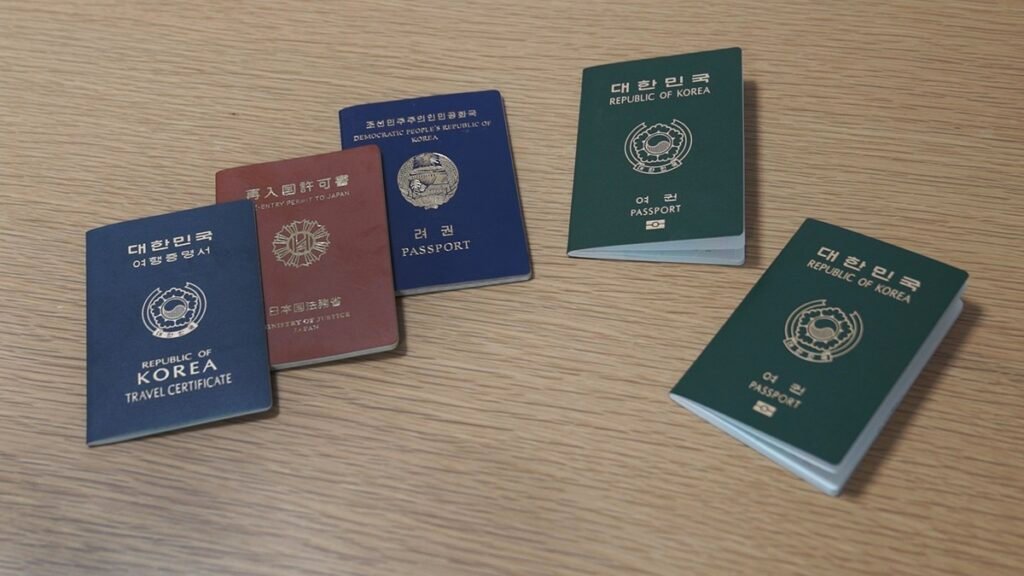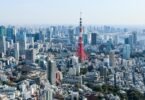Entry rules for South Korea are determined and enforced by the local authorities. The Embassy of the Republic of Korea in London provides a list of Notices that contain the most recent updates regarding entry requirements for South Korea, including any regulations related to COVID-19.
The information provided on this page represents the UK government’s knowledge of the current regulations for individuals traveling from the UK on a full ‘British Citizen’ passport, based on the most common types of travel.

Entry requirements to travel to South Korea
All travellers
Upon arrival in South Korea, it is mandatory to complete a health questionnaire regarding your current health condition. The South Korean government strongly encourages all incoming travelers to input this information into the Quarantine COVID19 Defense (Q-Code) system prior to their travel. While paper-based alternatives are accepted, using the Q-Code system is preferred as it can expedite the arrivals process.
It is not necessary for travelers arriving in South Korea to present a negative pre-departure COVID-19 test certificate. However, if you are experiencing symptoms related to COVID-19 and wish to undergo a test within three days of entering Korea, you can receive a free PCR test at a local health center. To obtain further information, including English language support, you should contact 1339 from within Korea.
Quarantine Requirements:
Currently, there is no mandatory quarantine requirement for entry into South Korea.
Data Collection: It is important to have a mobile telephone with roaming enabled or the contact information of a friend, relative, or contact who can provide updates on your health status to the authorities if necessary. Please note that a hotel telephone number will not be accepted.
For Fully Vaccinated Individuals: There are no specific provisions or exemptions for fully vaccinated individuals. Vaccinated travelers are required to adhere to the rules outlined for “All travelers” mentioned above.
For Unvaccinated Individuals: There are no specific provisions or exemptions for unvaccinated individuals. Unvaccinated travelers should follow the rules applicable to “All travelers” mentioned above.
For Individuals who had COVID-19 in the Past Year: If you have recently recovered from COVID-19, it is advisable to carry an official note from your doctor detailing the date of your positive test, the treatment you received, and/or the isolation measures you observed. This information may be considered by officials if you test positive or receive an inconclusive result while in Korea. Korean health officials have the discretion to determine the necessary precautions in such cases.
If you’re transiting through South Korea
Transiting refers to passing through a country while traveling to your ultimate destination.
Upon arrival in Korea, all transit passengers undergo a temperature check. If any symptoms are present, individuals will be subjected to a COVID-19 test and, if positive, may require hospitalization. Passengers who do not exhibit symptoms and test negative are allowed to continue their journey.
At Seoul Incheon Airport, transit passengers must possess a ticket or boarding pass for their onward flight to their final destination. It is advisable to confirm with the airline(s) before departure that their luggage has been checked through to the final destination, as transit passengers are not permitted to collect and recheck their baggage upon arrival at Incheon Airport.
Incheon Airport provides transit hotels in both Terminals 1 and 2. It is possible to have layovers in South Korea, which involve passing through immigration to enter the country during a long gap between flights. However, regular entry requirements must be fulfilled in such cases.
Check your passport and travel documents before you travel
Passport Validity: For individuals entering South Korea with a long-term visa, it is required that their passport remains valid for a minimum of 6 months from the date of entry. However, for short-term visitors (see ‘Visas and K-ETA’ below), there is no specific requirement for a minimum passport validity period. Nevertheless, it is essential to ensure that your passport remains valid for the entire duration of your stay in South Korea.
All foreign nationals residing in South Korea are obligated to report any changes in their passport information, such as receiving a new passport. This can be done online via the Korean Immigration Office website or by visiting a local immigration office in South Korea. For further assistance, you may contact the Korean Immigration Contact Centre at Tel: +82 1345.
It is advisable to check with your travel provider to ensure that your passport and other travel documents meet their specific requirements.
Visas: Visas and K-ETA: If you hold a British Citizen passport, you can enter South Korea as a tourist for a maximum period of 90 days without the need for a visa. It is important to have an onward or return ticket. Engaging in any form of work, including teaching, while on a tourist visa is illegal.
From April 1, 2023, to December 31, 2024, visitors from the UK and 21 other countries are exempt from obtaining a K-ETA (Korean Electronic Travel Authorization) for visa-free entry into South Korea. More information can be found on the official K-ETA website.
If you hold a different type of British nationality or intend to travel for purposes other than tourism, it is recommended to check the visa requirements with the Embassy of the Republic of Korea in London.
Long-Term Visa Holders: Re-Entry Permits: Foreign nationals residing in South Korea with most types of long-term visas are allowed to re-enter the country within 1 year of their departure without the need for a re-entry permit. To determine eligibility for exemption from a re-entry permit, please contact the Korean Immigration Contact Centre at Tel: 1345 or refer to the list of official announcements.
In cases where foreign residents plan to spend more than a year outside of South Korea, it is generally necessary to apply for a multiple re-entry permit through the HiKorea website prior to departure. If a re-entry permit is required, it is recommended to engage with the Immigration Authorities well in advance and apply for the permit at least four working days before your planned travel.
Customs declarations
To ensure compliance with customs regulations in South Korea, it is important to refer to the website of the Korea Customs Service for detailed information regarding restricted or prohibited items that are not allowed to be brought into the country. If you have any uncertainty about the legality of any items, including medications, it is recommended to declare them upon entry.
For personal use, South Korean customs authorities generally permit the importation of small quantities of medication, which should be kept in your carry-on baggage. It is advisable to carry an English language prescription from your doctor for both prescription drugs and non-prescription medicines. Before your travel to South Korea, it is also recommended to consult the website of the South Korean Ministry of Food and Drug Safety for any specific guidelines or requirements regarding medication importation.






